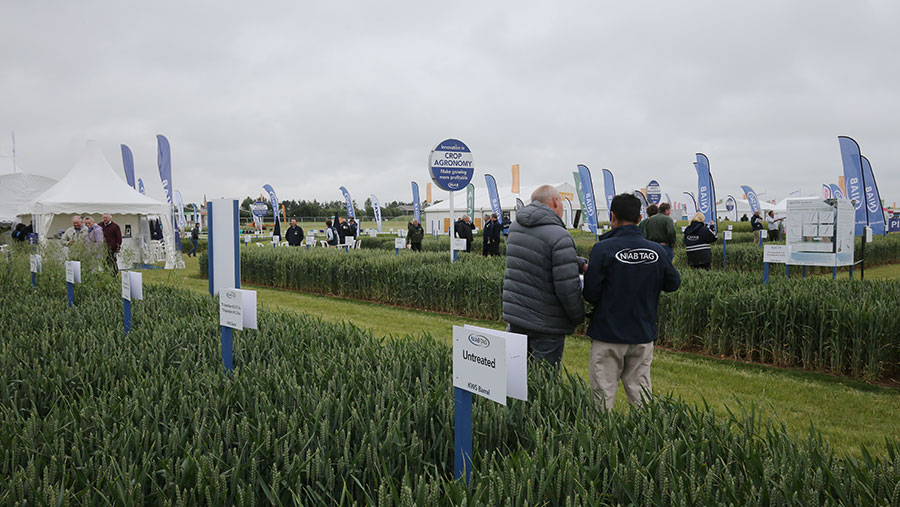FW Opinion: Return of events highlights arable sector split
 Cereals 2021 © Tim Scriveners
Cereals 2021 © Tim Scriveners This week saw the return of the Cereals event in Lincolnshire.It took place just a week after Groundswell in Hertfordshire, which is also primarily for arable farmers.
Separated by just 90 miles geographically, the events are seen by some as symbolic of a wider gulf that is opening up in arable farming over the best way to grow crops – environmentally and economically.
See also: Farmers Weekly Podcast Episode 63: Groundswell – does regenerative agriculture work?
Cereals, which for a number of years has been labelled the country’s premier arable event, is seen as a defender of the status quo. It is about patient incremental gains and reliance on chemistry.
In contrast, Groundswell is characterised as the event for a new wave of thinking built around regenerative agriculture.
While farmers’ hearts may be yearning for regen, many find their heads still turning towards the plough and power harrow
For converts, it can be about rapid and radical change away from a plough-based system, and more reliance on biology.
Although smaller than in the past, Cereals is still the bigger event, but Groundswell is growing.
At Cereals, crowds still thronged the alleys on day one, but key exhibitors such as agronomists and seed breeding firms opted to no longer take part.
At Groundswell, exhibitor and visitor numbers were up and the atmosphere there was palpably positive.
Attendees were enthusiastic and eager to learn, recognising that while their existing system of farming presents a slew of agronomic and financial challenges, so does radical change, particularly if you’re on heavy land or there are root crops in your rotation.
It would be too soon to say that farmers are thronging towards no-till, though.
A leading regenerative farmer told me at Groundswell that perhaps only two or three percent of the arable community have fully moved over to this system, although more are experimenting with some of the principles.
So, while farmers’ hearts may be yearning for regen, many find their heads still turning towards the plough and power harrow.
Defra secretary George Eustice’s speeches at both Groundswell and Cereals show that the department’s vision for the arable sector is a little more in the former camp.
He has pledged this week that, from 2022, farmers in England will be paid 30% more under the Sustainable Farming Initiative for a suite of soil protection measures than they would currently earn in the equivalent Countryside Stewardship scheme.
Depending on the details, this latest announcement may help dilute the financial risks of changing scheme and nudge another group of growers into a new way of doing things.
In the approaching post-subsidy world, minimising reliance on costly cultivations and inputs certainly seems attractive, if it can be done without slashing profitability.
The one thing no event and no farmer can afford to do is assume that whatever works for them at the moment will work forever.
Award win – credit where it’s due
The team at Farmers Weekly were thrilled to receive the title of Specialist Magazine of the Year at the Professional Publishers Association (PPA) awards last week.
As well as an excuse to give ourselves a pat on the back, the award was also a reminder of the tremendous support we have from each of you – without whom there would be no FW.
We have been enormously proud to continue to keep you informed and entertained throughout the pandemic.
As the country opens up, we look forward to seeing more of you than ever on farm and at events, and bringing you even more of the stories that matter.

